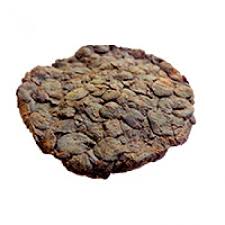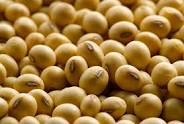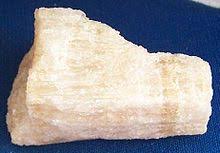Ogiri Production From Melon Seed; The Feasibility Report.

Egusi colosynthis citrullus lanatus is a West African melon. Agushi, agusi and egushi are other names for this fruit. The melon’s flesh is bitter and inedible; only the seeds of the fruit are eaten. Egusi seeds are high in protein and their flavor is said to be close to that of pumpkin seeds. Each seed is oval shaped and whitish in color with a light tan shell. The shelled seeds are ground for use in Nigerian recipes — especially the popular egusi soup and ogiri condiment.
In Nigeria, fermented vegetable protein is use as flavoring agents to soups and sauces. Apart from the strong and pleasing aroma, it also contributes to the protein and essential fatty acid intake.
Fermentation of these vegetables proteins is usually done in the moist solid state by random inoculation brought about by various indigeneous species of micro organisms.
In Nigeria, some of the commonly used condiments are Ogiri Egusi from melon seed, iru from African locust beans, ogiri ugba from African oil beans seed and Dawadawa from soy beans.
The proximate composition indicates that ogiri egusi were widely used to give flavor and tastes to food and could contribute to the protein, liquid and mineral daily intake when used liberally as done in several homes where the expensive animal products are a luxury one.
Seeds should be purchased fresh to avoid unhealthy fungal growth that may be carcinogenic, or cancer causing. Many Nigerians buy the seeds still in chunks of melon. They remove the seeds at home, then shell and grind them. Toasted egusi seeds are eaten for snacks or fried into small cakes.
Egusi seeds are fat- and protein certain cucurbitaceous (squash, melon, gourd) plants. Authorities disagree whether the word is used more properly for the seeds of the colocynth, those of a particular large-seeded variety of the watermelon, or generically for those of any cucurbitaceous plant. The characteristics and uses of all these seeds are broadly similar.
The Nigerian Ogiri, prepared with melon seeds, is prepared by most tribes in Nigeria in many different ways.
This report seeks to examine the financial viability or otherwise of producing ogiri from melon seed in Nigeria.
Table of Contents
EXECUTIVE SUMMARY 1.0 Business Overview 1.1 Description of the Business 1.2 Vision and Mission Statement 1.3 Business Objective 1.4 Critical Success Factor of the Business 1.5 Current Status of Business 1.6 Description of the Business Industry 1.7 Contribution to Local and National Economy 2. Marketing Plan 2.1 Description of product 2.2 Product Packaging and delivery 2.3 The Opportunity 2.4 Pricing Strategy 2.5 Target Market 2.6 Distribution and Delivery Strategy 2.7 Promotional Strategy 2.8 Competition 3. Production Plan 3.1 Description of the Location 3.2 Raw Materials 3.3 Production Equipment 3.4 Production Process 3.5 Production Cost 3.6 Stock Control Process 3.7 Pre-Operating activities and expenses 3.7.1 Operating Activities and Expenses 3.8 Project Implementation Schedule 4.0 Organizational and Management Plan 4.1 Ownership of the business 4.2 Profile of the promoters 4.3 Key Management Staff 4.3.2 Management Support Units 4.4 Details of salary schedule 5. Financial Plan 5.1 Financial Assumption 5.2 Start -up Capital Estimation 5.3 Source of Capital 5.4 Security of Loan 5.5 Loan Repayment Plan 5.6 Profit and Loss Analysis 5.7 Cash Flow Analysis 5.8 Viability Analysis 6.0 Business Risk and mitigation factor 6.1 Business Risks 6.2 SWOT Analysis
Project Specification:
Additional Info
Get this Report
Direct bank transfer
To order the report, Please do pay the sum of ₦30,000 into
Account Name : Foraminifera Market Research Ltd
Account Number : 274 20 569 37
Account Name : Foraminifera Market Research Ltd
Account Number : 101 76 603 95
Account Name : Foraminifera Ventures
Account Number : 011 66 066 32
Make your payment directly into our bank account. Please use your Order ID as the payment reference. Your order will not be shipped until the funds have cleared in our account.
Instructions
After payment call us on 01 -29 52 413 / 08033782777 or email us at foraminiferamarketresearch@yahoo.com with the payment details. After payment confirmation, the soft copy of the report would be sent to you within 24 hours.



